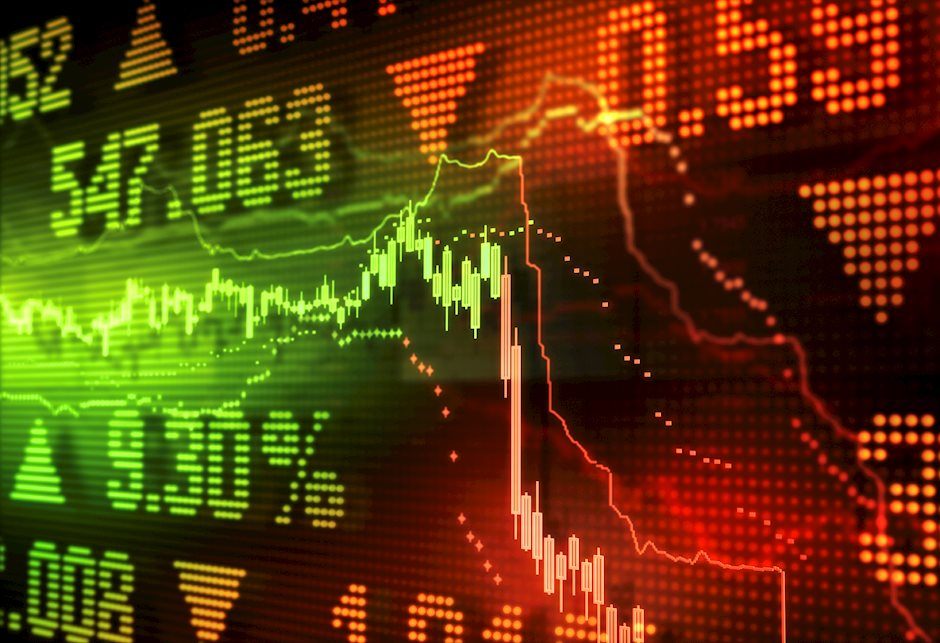War and inflation

The mind-blowing rally in the European and US stock markets was quite hard to explain.
The optimism from the announcement that the EU would issue a massive joint bond to finance the skyrocketing costs of energy, and defense could have helped improve the market mood. And the fact that the oil prices didn’t spike further following the announcement that the US and the UK would ban the Russian oil certainly amplified gains. And the selloff in both the EuroStoxx and the S&P500 and like were so steep that the correction has been proportional to the loss of blood weeks prior to yesterday’s jaw-dropping rally.
Could it last? Not sure.
Good news
Limited rally in oil prices following the embargo on Russian oil has been a sign that a part of the bad news was already and broadly priced in.
But it’s certainly too early to uncork the champagne, as the tighter global supply and oil producer countries’ difficulties - and little willpower - to increase production will certainly play in favour of an extended period of expensive oil. We may, however, hope the prices would top near $140/150 range and not progress toward the $200 per barrel. This morning oil is recovering losses it made yesterday.
ECB to change plans amid war, but in what direction?
The European Central Bank (ECB) meets for the first time since the Ukrainian war started, and its decision will be important to give us an idea on where the policymakers stand faced with a war on the continent.
There are two forces that will be strongly playing against each other due to the war. First, the war will certainly slow down the post-pandemic economic recovery and the businesses will need support to keep their head above water.
But then, the war will also boost the already high inflation through significantly higher energy and commodity prices, and will limit the ECB’s scope of action – even more so as the EU countries are now preparing to issue a massive joint bond, which would further boost inflation and leave the ECB between a rock and a hard place.
The EURUSD rebounded past the 1.10 mark after testing the 1.08 support at the start of the week. The ECB announcement will certainly give a fresh short-term direction to the single currency. The minutes of the February meeting, and the comments we heard from Christine Lagarde at her latest ECB presser were pointing that the European policymakers were preparing to announce their first step of the policy normalization in the Eurozone in March. The latest economic projections will take the uptick in inflation into account, and that would certainly point to a tighter policy stance to cool down the price pressure.
But then, the ECB must find a balance between the economic implications of the Ukrainian war, and a potentially uncontrollable rise in inflation levels. Activity on the Eurozone sovereign bonds are back in the positive hinting that despite the war, the ECB could choose to fight back inflation, and hint at a first rate hike by the end of summer. If that’s the case, the EURUSD has potential to jump back above the 1.12 mark.
More inflation
The US will be revealing its latest CPI data today, and analysts expect a further progress in the US inflation to the 7.9% level. Given the actual circumstances, it is of course very well possible that we see an unpleasant surprise, which would send the US inflation above the 8% psychological mark.
The question is, by how much the rise in inflation could change the Federal Reserve (Fed) expectations. As it’s the case for the ECB, the Fed will also be closely monitoring the economic implications of the Ukrainian war, and will certainly not be in a position to normalize its policy as aggressively as we thought at the start of the year.
A further uptick in US inflation data could still revive the Fed hawks, but there is little room to play for the Fed hawks. Still, we saw an alarming flattening in the US yield curve lately, where the spread between the 2 and the 10-year yields flattened, hinting that the Fed will still choose to fight inflation even with a slower growth in perspective. Therefore, a higher-than-expected inflation figure will certainly weigh on the investor mood.
The US dollar index eased to 98 as a result of a broad rally in equity and currency markets. Gold slipped below the $2000 per ounce, while Bitcoin couldn’t hold the $40K support on rumours that the US regulation may not be harmful to cryptocurrencies. I believe that yesterday’s unexplained optimism could give way to a soft session, as the news and fundamentals give little reason for optimism right now.
Author

Ipek Ozkardeskaya
Swissquote Bank Ltd
Ipek Ozkardeskaya began her financial career in 2010 in the structured products desk of the Swiss Banque Cantonale Vaudoise. She worked in HSBC Private Bank in Geneva in relation to high and ultra-high-net-worth clients.

















